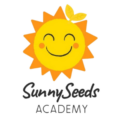Our Curriculum
Our Curriculum

Core Subjects

Cambridge/ UK English (together with Phonics)
Provide the perfect start to life’s great adventure, creating ‘future ready’ learners who embrace life with confidence. Immersive learning with vibrant characters that the students will love, foster collaboration through real-world missions, deepen learners social and cognitive skills, explore embedded exam preparation and expand the skill-set ensuring every student reaches their full potential. This would cover 4 parts: Listening, Speaking, Reading & Writing.
Cambridge English brings out the interest towards language through listening, speaking, reading and writing, focusing on the Common European Framework of Reference for Languages (CEFR). The CEFR is an international standard for describing language ability. It describes language ability on a six-point scale, from Pre-A1 Starters for preschoolers, A1 for beginners, up to C2 for those who have mastered a language.
Children will learn the fundamental of English language through a structured method, complemented with multimedia from Cambridge or Learning Box Education. We prepare our 6 years old students for Cambridge English Qualifications (CEQ) Pre-A1 Starters (external assessment from Cambridge).
Bahasa Melayu
Using a cheerful and friendly illustrations with the aim of capturing the attention of children and making the teaching and learning process more effective. It employs a thematic approach that aligns with the requirements of the Ministry of Education Malaysia.
In addition to enriching vocabulary, the chosen themes can expose children to their surroundings. Through this, children can apply what they have learned in their daily lives. Activities provided are story telling, poetry, questioning and answering, and singing also create an interactive and engaging learning environment among children.
Mandarin Language
The Mandarin syllabus is compiled according to the latest preschool education curriculum standards (KSPK) of the Ministry of Education. Able to prepare children to enter Primary 1 in SJKC.
It uses a step-by-step approach to establish a solid foundation for young children’s Chinese language. The content is rich, vivid, interesting and interactive. Each theme is close to life, covering school, family, garden, sports, etc., allowing children to learn and use it immediately.
The content covered includes new words, short sentences, questions and answers, Chinese pinyin, strokes, stroke order, hieroglyphics, story retelling and grammar. It also includes catchy nursery rhymes, tongue twisters and formulas to help children master listening and speaking, basic skills of reading and writing.
Mathematics
A combination of multiple intelligence books with tools, hands-on exercises and logical thinking to enable the young learner’s minds to have a complete and balanced development, which would unleash the maximum potential in a child’s brain.
Strike a balanced stimulation of the child’s left and right brains, at the same time, will enable the child to have a complete brain develepment. This method of development will increase the child’s observation skills, memory skills, analytical skills, creative skills, innovative and logical thinking skills.
Reading Program
English, Mandarin & Bahasa Melayu.
STEAM Program (Science, Technology, Engineering, Art, Math) - For Preschool & Kindergarten Program
Different materials and tools for age-appropriate exploration, experiment and play based program to engage curious young minds towards the world around them. Children will be exposed to cognitive stimulation, critical thinking, analytical skills and hands-on STEAM skills.
Language & Sensory Program - For Nursery Program
Learning materials and tools for our Nursery 3 years old students where they are engaged in play-based & hands-on learning. Children will use the materials to learn alphabets, numbers, sensory, life skills, motor skills and craft.
EyeQ Connection
A Scientifically-backed Early Learning Methodology From Finland
Education trend changes with advancement of technology. In current generation, where AI is used widely, we have to equip our children not only with academic excellence, but with critical thinking and problem solving skills, which would involve more collaboration, project-based learning, students’ discussion, teacher-child engagement and variety of soft skills (i.e. time management, conflict resolution, communication, teamwork, creative thinking).

Thinking Skills Workbook

Game-based Learning

Music Gym

